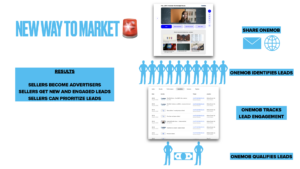Understanding the Inbound Sales Process
In a digital phone company, the inbound sales process begins with attracting potential customers through digital marketing efforts. Once these prospects initiate contact, either through a call, email, or filling out a form, they are connected with an inbound sales representative. This initial interaction is crucial, as the sales rep must quickly establish rapport while assessing the customer’s needs. Unlike traditional sales methods that rely heavily on cold calling and persuasion, inbound sales focus on guiding and advising the customer based on their expressed interests and requirements.
Key Responsibilities and Skills of an Inbound Sales Rep
An inbound sales representative in a digital phone company carries a variety of responsibilities that go beyond mere selling. Their key duties include:
- Responding promptly to inbound inquiries and effectively qualifying leads.
- Providing personalized recommendations based on the customer’s specific needs.
- Utilizing CRM software to track interactions and customer information accurately.
- Maintaining up-to-date knowledge of the company’s products and services.
To excel in these areas, an inbound sales rep must possess a unique set of skills, including exceptional communication, empathy, problem-solving abilities, and technological proficiency. An often overlooked, yet critical, skill is the ability to listen actively, allowing the rep to understand the customer’s needs fully and provide tailored solutions.
How Inbound Sales Reps Contribute to Customer Satisfaction
The role of an inbound sales rep is pivotal in ensuring customer satisfaction in a digital phone company. By offering tailored advice and solutions, reps can significantly influence a customer’s perception of the brand. A positive interaction with an informed and courteous sales rep can lead to a lasting customer relationship. Furthermore, inbound sales reps often act as the customer’s advocate within the company, providing feedback to product and marketing teams to improve offerings and communications. This symbiotic relationship between sales reps and customers not only boosts satisfaction but also drives customer loyalty and word-of-mouth referrals, crucial for the sustained growth of the business.
Leveraging Technology for Sales Success
As the landscape of sales continues to evolve, technology plays a pivotal role in shaping the strategies and successes of sales teams. CRM tools, digital phone systems, and data analysis are at the forefront of this technological revolution, each offering unique benefits that can significantly enhance sales efficiency, improve customer interactions, and inform strategic decision-making.
CRM Tools and Their Impact on Sales Efficiency
The implementation of Customer Relationship Management (CRM) tools has transformed the sales process, making it more efficient and streamlined. These tools provide a centralized platform for tracking interactions with potential and existing customers, managing sales pipelines, and automating tasks. This not only saves time but also enhances the accuracy of sales forecasts. One lesser-known fact is that CRM systems can also integrate with other sales technologies, creating a cohesive ecosystem that boosts productivity and enables sales reps to focus more on selling and less on administrative tasks.
Using Digital Phone Systems to Enhance Customer Interactions
Digital phone systems have redefined the way sales reps connect with customers. With features such as call forwarding, voicemail to email, and interactive voice response (IVR), these systems ensure that customer inquiries are handled efficiently and professionally. A notable curiosity is that digital phone systems can also provide insights into call patterns, helping sales teams to better understand peak call times and adjust their strategies accordingly. This level of customization and flexibility enhances the customer experience, leading to higher satisfaction and loyalty.
The Importance of Data Analysis in Sales Strategy
In today’s data-driven world, the ability to analyze sales data effectively is crucial for developing informed strategies that drive success. Data analysis tools can reveal patterns, trends, and insights that might go unnoticed otherwise. For instance, analyzing customer purchase history can identify upselling and cross-selling opportunities, while tracking sales rep performance can highlight areas for improvement or training needs. Interestingly, predictive analytics can forecast future sales trends, allowing teams to adjust their strategies proactively. This strategic use of data not only optimizes sales efforts but also ensures a competitive edge in the market.
Best Practices for Inbound Sales Reps
Following the exploration of leveraging technology for sales success, it’s crucial for inbound sales representatives to not only rely on advanced tools but also refine their approach to selling. Building robust customer relationships, adeptly handling objections, and continuously learning are pillars of success in the digital sales landscape.
Building Strong Customer Relationships Through Effective Communication
Effective communication is the bedrock of strong customer relationships. It’s not just about answering calls or responding to messages; it’s about actively listening to your customers, understanding their needs, and providing tailored solutions. Personalizing your approach can significantly impact customer satisfaction and loyalty. For instance, using the customer’s name during conversations and recalling previous interactions can make customers feel valued and understood. Furthermore, leveraging digital phone systems’ capabilities to document and analyze customer interactions can help in offering a more personalized experience.
Tips for Handling Objections and Closing Deals
Objections are a natural part of the sales process, but they’re not necessarily a roadblock. Instead, view them as opportunities to further understand and address your customer’s concerns. It’s essential to remain patient and empathetic, acknowledging the customer’s concerns without immediately jumping to a rebuttal. Techniques such as the “Feel, Felt, Found” method can be effective—showing you understand how they feel, others have felt the same way, but found your solution beneficial. Additionally, mastering the art of asking open-ended questions can guide the conversation towards a resolution that aligns with the customer’s needs, facilitating a smoother closing process.
Continuous Learning and Adaptation in a Digital Sales Environment
The digital sales environment is ever-evolving, making continuous learning and adaptation non-negotiable for inbound sales reps. Staying abreast of new sales techniques, technologies, and customer preferences can significantly enhance your sales approach. Participating in online courses, webinars, and workshops, as well as seeking feedback from peers and supervisors, are effective ways to foster professional growth. Embracing a culture of learning within your team can also encourage knowledge sharing and innovation, ensuring that your sales strategies remain effective and competitive.
By incorporating these best practices, inbound sales representatives can not only improve their sales performance but also contribute to creating a more customer-centric sales process. Remember, the key to success in digital sales lies not just in leveraging technology, but in combining it with a human touch and strategic approach.
The future of inbound sales in the telecom industry is poised for transformation, driven by emerging trends in digital communication, the impact of AI and automation, and the need for businesses to adapt to changing consumer behaviors in a digital age. As we advance, understanding these dynamics becomes paramount for inbound sales reps aiming to excel in this evolving landscape.
Emerging Trends in Digital Communication
The telecom industry is witnessing unprecedented innovation in digital communication technologies. With the advent of 5G networks, the Internet of Things (IoT), and enhanced mobile broadband, sales reps are equipped with faster, more reliable tools to connect with clients. These advancements not only facilitate smoother interactions but also open new avenues for personalized customer engagement, leveraging rich multimedia content and real-time data analytics.
Impact of AI and Automation on Inbound Sales
AI and automation are revolutionizing the sales process, offering new efficiencies and insights. From chatbots that provide instant customer support to predictive analytics that anticipate customer needs and preferences, these technologies are transforming how sales reps interact with their prospects. However, the human element remains irreplaceable, with AI serving to enhance rather than replace the personalized touch that distinguishes effective sales.
Adapting to Changing Consumer Behaviors
In a digital age, consumer behaviors are evolving rapidly. Customers today expect instantaneous, on-demand communication and are more informed than ever before. For inbound sales reps, this means adopting a customer-centric approach, focusing on building trust and delivering value at every touchpoint. Understanding the customer’s journey and leveraging digital tools to create a seamless, engaging experience are key to success in this new era.
To remain competitive, telecom companies and their inbound sales teams must embrace these changes, leveraging technology to enhance human interactions rather than replace them. The future belongs to those who can blend the latest digital advancements with a deep understanding of customer needs, creating personalized, meaningful connections that drive success in the digital age.







